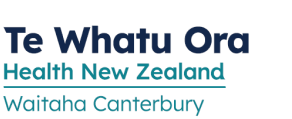What does it do?
Budesonide is a steroid medicine used to treat inflammatory bowel disease, such as Crohn’s disease.
Before you start
- Tell your doctor if you have heart failure, high blood pressure, diabetes, glaucoma, osteoporosis (weak bones), a mood disorder, or if you have ever had a seizure.
- Tell your doctor if you are pregnant, planning to become pregnant, or breastfeeding.
How should you take it?
Take budesonide regularly as directed in the morning. Swallow whole with a glass of water.
If you have trouble swallowing you can open the capsules and sprinkle the contents on a small amount of soft food and swallow without chewing. Do not crush the capsule contents.
What if you forget a dose?
If it is nearly time for your next dose, skip the missed dose and take your next dose at the usual time. Otherwise, take the missed dose as soon as you remember. Do not take two doses at the same time.
Can you take other medicines?
Tell your pharmacist or doctor about all medicines or treatments that you may be taking, including vitamins, herbal products or recreational drugs.
What side effects might you notice?
These side effects happen less often with budesonide capsules or tablets than with other steroid medicines.
| Side Effects | Recommended action |
|---|---|
|
Changes in vision Peeing more often, feeling thirsty Muscle or bone aches and pains |
Tell your doctor |
|
Mood changes, restlessness, trouble sleeping Weight gain, swollen feet or legs Acne, stomach upset |
Tell your doctor if troublesome |
If you notice any other effects, discuss them with your doctor or pharmacist.
Other information:
- Do not stop taking budesonide suddenly without talking to your doctor first. Your doctor may reduce the dose gradually.
- Long-term use of budesonide may cause side effects such as: round face, change in body shape, change in hair growth, thin skin, weak bones, increased blood pressure and diabetes.
- Long-term use of budesonide can weaken your immune system, making it harder for your body to fight infections. Tell your doctor if you become unwell or come into contact with someone who has a contagious infection such as chicken pox or measles.
- Grapefruit, grapefruit juice or sour/Seville oranges may react with budesonide. Discuss with your pharmacist.
This leaflet contains important, but not all, information about this medicine.
Prepared by the MyMedicines Committee at Christchurch Hospital, Te Whatu Ora - Waitaha, New Zealand. March 2023
For more general information about this sheet and its contents, see: What does a My Medicines sheet cover?
Te Reo Māori
Te Reo Māori information sheets supported by Health Quality and Safety Commission New Zealand
Web links for this sheet in different formats
Click on buttons to copy web addresses for this leaflet:
If your browser does not automatically copy these links use its copy command instead.
About My Medicines
My Medicines Patient Information Leaflets (PILs) contain important, but not all, information about the medicines they describe.
For more information about the sheets, see: What does a My Medicines sheet cover?
My Medicines is developed by a team at Te Whatu Ora – Waitaha. Our team is made up of doctors, pharmacists, and a non-medical person to help us keep to plain language. We also discuss our information with specialist health professionals or groups when needed

